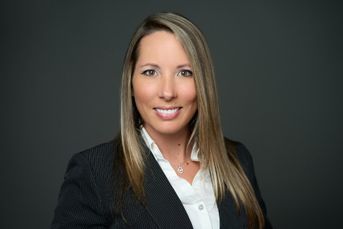Finding your higher calling in a crisis

It’s time for advisers to lend a hand to those who are faring less well
It’s been about two months since the coronavirus descended upon the United States. As of last Wednesday, more than 1.3 million Americans had contracted COVID-19 and 82,246 had died, according to government data. At the same time, the attempt to slow the spread of the disease by shutting many types of businesses and activities has crushed the U.S. economy; more than 33 million people have filed for unemployment benefits in the last seven weeks and the unemployment rate hit 14.7% in April, the highest level since the Great Depression.
Industries like restaurants, hotels and retailers, which largely depend on face-to-face interaction, have been particularly hard hit by the shutdown. The leisure and hospitality sectors lost 7.7 million jobs last month, while the retail industry lost 2.1 million jobs.
In contrast to restaurants and retailers, financial advisory firms have taken a hit but managed, for the most part, to keep on chugging. The market volatility in March, and the damage it did to many clients’ portfolios, cut into revenue for firms that charge fees on assets under management. But the markets bounced back in April, in large part thanks to the government’s massive stimulus measures, and that market rebound alleviated the damage done to portfolios and to firms’ fee revenue.
MOVE TO REMOTE
Moreover, advisory firms seem to have successfully managed the leap from relying on in-person meetings to advising their clients and prospects in new ways, from working remotely and meeting clients virtually to online marketing.
This is not to minimize the stress that everyone in the industry is under — not to mention the heartbreak suffered by those who have lost family or friends to the virus. But, so far, the financial advice industry has gotten off relatively easy.
Given that, it’s time for advisers to lend a hand to those who are faring less well.
FIGURING OUT THE CARES ACT
Across the U.S., people who lost their jobs are trying to figure out which bills they can pay now that there’s no paycheck coming in. Those who have a company retirement plan or an IRA may be wondering whether to avail themselves of the CARES Act relief allowing them to access those funds penalty-free. Workers who lost their jobs and have a 401(k) may also be wondering what to do with the account. All of these are questions advisers might be able to help with.
In an interview with InvestmentNews special projects editor Liz Skinner last month, Jon Dauphine, CEO of the Foundation for Financial Planning, said the scant emergency savings of many Americans mean those who lose their jobs may have little cushion to fall back on. Advisers can help unemployed people figure out what government programs they could turn to for help or whether a loan is a good idea, he said. Dauphine noted that advisers should learn about all the benefits and provisions in the various relief measures so that they can help both current clients and pro bono clients.
PRO BONO SERVICES
The foundation has a service that matches financial planners interested in volunteering with people who are seeking advice. Similarly, the Financial Planning Association has put together a list of its CFP members who are willing to provide pro bono advice.
As members of a service industry, it makes sense for advice professionals to use this time to help those who wouldn’t normally avail themselves of an adviser. Since we can’t enjoy so many of the pleasures we’ve taken for granted — like going to a ballpark, bar or theater — there’s something to be said for keeping busy and having a purpose. And what better purpose for advisers right now than to do the thing they do best: work with people who really need their advice.
Learn more about reprints and licensing for this article.







